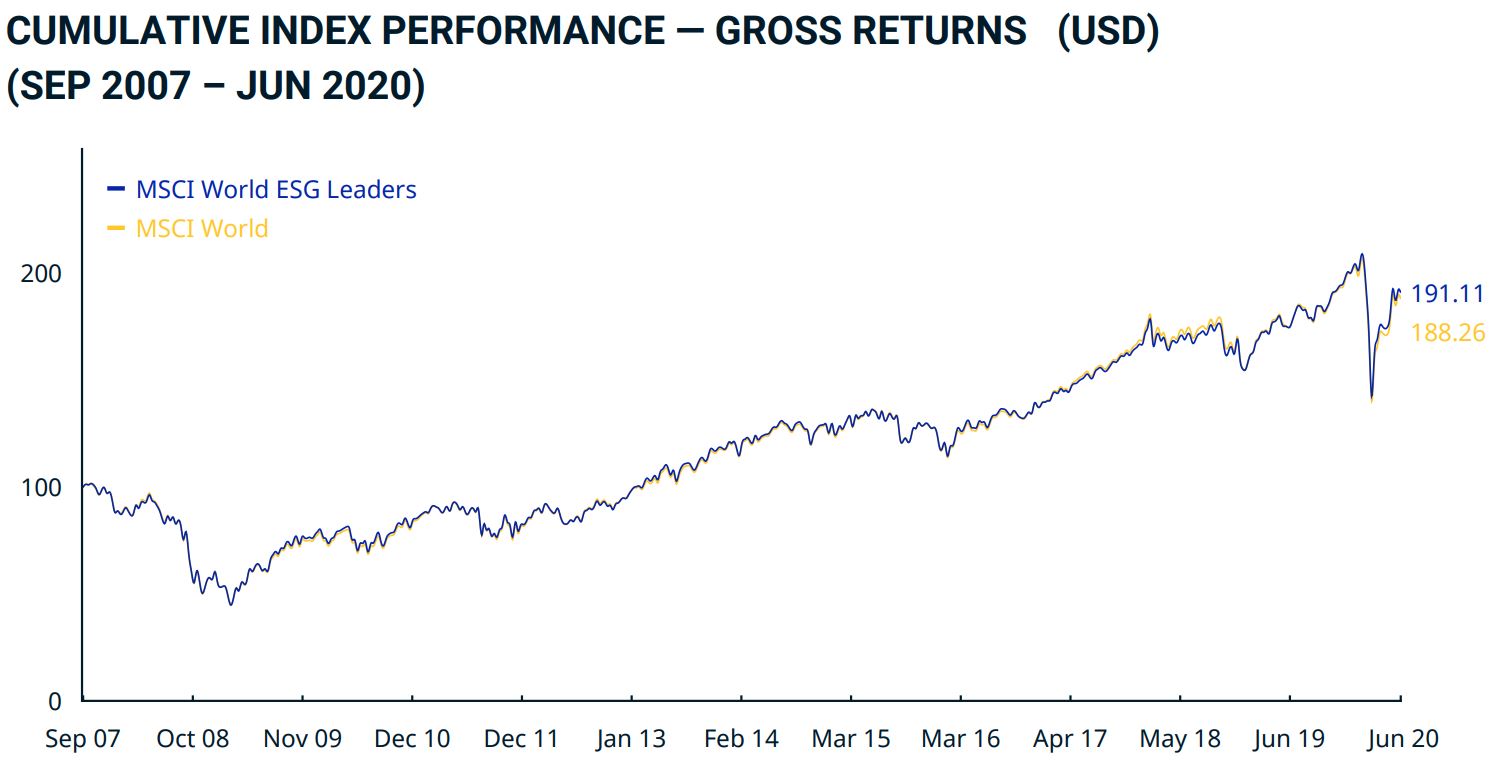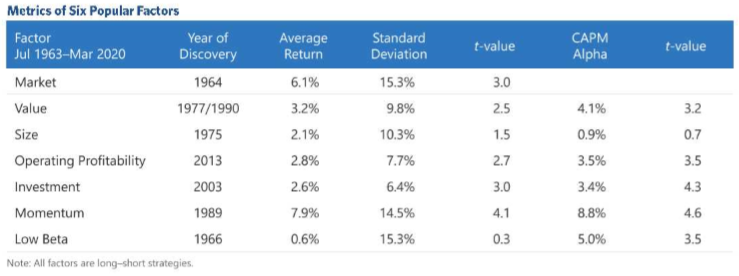ESG ETFs outperformed their parent indices during the coronavirus turmoil leading many market participants to claim one can "do good" without having to give up returns.
Furthermore, when looking over longer time horizons, ESG indices have also outperformed. For example, the MSCI World ESG Leaders index returned 7.9% over the past five years versus 7.5% for the MSCI World, as at the end of June.

Source: MSCI
Due to this recent past performance, ETF issuers and index providers have argued ESG in its own right can deliver outperformance, however, a recent report by Research Affiliates argues this has created a confusing ESG landscape made-up of conflicting claims.
The report, entitled Is ESG a factor?, looks to clarify whether ESG complies with the critical requirements for being a factor.
The critical requirement for ESG to be a factor is threefold:
A factor should be grounded in a long and deep academic literature
A factor should be robust across definitions
A factor should be robust across geographies
Research Affiliates breaks down these requirements to see if ESG complies and therefore qualifies as a factor.
Academic literature
The report’s authors, John West and Ari Polychronopoulos, argue that traditional factors, such as value, low beta and momentum, have been thoroughly researched for several decades. For ESG however, there is little agreement regarding the robustness of earning a return premium for investors.
In fact, there are contradictory studies that have found ESG to be both an additive to returns and detracting from returns.

Source: Research Affiliates
One argument Research Affiliates highlights is some situations could lead to positive ESG-related stock price movements such as increased popularity of strong ESG companies as a result of more investors adopting ESG considerations. These price movements would be a one-time occurrence, however.
Robust definitions
The slight variations in the definition of a factor should have a negligible impact on the performances, according to the report.
The value factor’s long-term performance across three valuation metrics (price-to-book, price-to-earnings ratio, price-to-cash flow ratio) all yield similar figures.
The issue with ESG is that it has no common standard definition and is used as a broad term for a range of themes. The ESG data history for some of these definitions is quite short as well which meant Research Affiliates could not conduct a thorough backtest.
Therefore, the t-values – the standard error – were not very significant for any of the E, S and/or G strategies.
In a study performed by Research Affiliates earlier in 2020, one company scored Wells Fargo positively and Facebook negatively whereas another company scored them the opposite. This highlights the issues investors are faced with when trying to investing in a sustainable product.
Geographically robust
Research Affiliates conducted a single factor linear regression against the market return which found a low or negative alpha for the majority of strategies.
This means the ESG performance results are not robust across regions in addition to not being robust across definitions or having a significant academic literature history.

Source: Research Affiliates
The report concludes by saying: “ESG is not a factor but could be a powerful theme.”
Furthermore, Nicolas Rabener, founder and CEO of FactorResearch, argues that almost any approach can be defined as a factor.
“A factor is simply a rules-based framework to stock selection and therefore almost any approach is per definition a factor,” he adds.
“For example, stocks can be sorted by letters of the CEO's first name or their golfing habits.”
Although, Rabener does agree with Research Affiliates' conclusion that ESG lacks academic research and does not have a clear definition.
Having failed all three characteristics that make a factor a factor, ESG can still produce ‘superior returns,’ says Research Affiliates.
The report highlights two distinct groups that are leading the significant push into ESG as being women and millennials as they take greater control of household assets. Bank of America noted that these two groups plus high net worth individuals could cause assets in ESG funds to grow by $20trn over the next 20 years.
ESG strategies are well positioned to benefit from regulatory changes that will bring greater standardisation and transparency to ESG products. In 2019, UK government pension funds are required to incorporate ESG considerations into their strategies and from March 2021, investment managers will be required to provide ESG disclosures which is being enforced by the European Union.
Having analysed numerous ESG portfolios, Rabener has discovered that they usually take the form of holding long and short positions on certain factors and sectors.
Rabener adds: “Analysing ESG portfolios highlights that this stock selection approach represents a multi-factor portfolio that is long quality and low volatility and short the value factor.
“Viewed from a sector perspective, ESG is long technology and short energy stocks. Given this, ESG is not a useful factor in its own right.”




